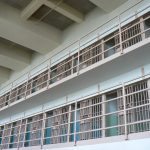Renewed Calls for the Decriminalisation of Minor Offences

The Queensland Productivity Commission (QPC) has heard that the increasing number of people criminalised as a result of poverty and abuse is one of the most significant problems facing the State’s prison system.
The QPC was tasked last year with undertaking an inquiry into imprisonment and recidivism in the state, and has since recommended a range of policy changes to improve outcomes for the community.
Eleventh review in a decade
The inquiry is the 11th major review of the Queensland Criminal Justice system in a decade, and the QPC has made clear in a draft report that chronic prison overcrowding is the biggest problem faced by the system.
The report also found that behavioural, policy and systemic changes—rather than underlying rates of crime, which it found have been falling steadily in the state for the past 20 years—were the driving factors behind increase imprisonment rates.
Push for decriminalisation of some minor offences
Now seeking feedback on its draft report, the QPC is conducting a series of public hearings throughout the state. At one hearing, Sisters Inside chief executive Debbie Kilroy told the story of a mother in prison for stealing baby formula. Just one example of a growing number of prison inmates behind bars for minor offences that are often committed out of circumstance.
Ms Kilroy told commission that decriminalising minor and non-violent offences, such as public urination, drunkenness, drug possession and begging, would help curb the flow of poor and disadvantaged Queenslanders flooding into the system.
Ms Kilroy, who spent a term in prison herself for drug trafficking, says women who commit crimes as a result of poverty or substance abuse should be housed and helped, rather than arrested, pointing out that “it would be cheaper to pay a woman’s rent for a year, for just over $18,000 than put her in prison for $107,000.”
Ms Kilroy’s push for decriminalisation comes directly after former Australian Federal Police Commissioner, Mick Palmer, publicly supported the push for decriminalising illicit drugs for personal use.
Former AFP Commissioner pushes for major reform of drug laws
Mr Palmer, told the QPC that the current prohibitionist approach to drugs was “badly broken” and that “removing criminal penalties for drug use and possession of small quantities would enable police to focus on drug traffickers while drug abuse is treated more effectively as a health and social issue.”
Overseas, there are several models that attest to the success of such an approach.
Queensland’s prison population on the rise
Queensland’s prison population rose by a massive 58 percent during the years 2012 to 2018.
The QPC has made 18 draft recommendations that aim to allow more effective ways to deal with offending, break the cycle of offending and reduce interactions with the criminal justice system.
In recent days a Queensland newspaper has also released horrific images of a prison guard bashed by inmates last year at Woodford Prison.
Prison staff, who have been on strike over employment negotiations with Queensland Corrective Services say inadequate staffing at Queensland prisons, as well as overcrowding, is to blame for inmate violence which is seriously compromising the safety of staff.
Of particular concern, they say, is the Government’s proposed operational staffing model involving more casual staff – a dangerous idea because it means that if an officer is absent, the prison wouldn’t fill a post but would shuffle people around.
The Queensland State Government recently announced it will be taking over the management of both The Arthur Gorrie Correctional Centre and the Southern Queensland Correctional Centre (SQCC), two high-security prisons, which have previously been run by private operators.
The Government is taking over the contracts at a cost of $111m over the next four years, in response to recommendations from the Crime and Corruption Commission’s Taskforce Flaxton, which last year conducted an investigation into the entire Queensland prison system.
Many working in the system are cynical of yet another ‘comprehensive review’ saying that it’s obvious the entire system needs an overhaul, but that Governments are reluctant to undertake sweeping reform because they want to appear that they have a tough stance on crime.
Overcrowding, an Australia-wide problem
Because of this, Queensland is not alone with these problems. Nationally, prisoner numbers have risen 40% in the five years from 2012.
In 2015-2016, the average occupancy of NSW prisons was 122% of the system’s official capacity. The year before, it was 112%.
The State Government responded to the problem of overcrowding by constructing two “rapid-build prisons” which were able to be built in less than a year because of their dormitory-style facilities rather than traditional cell blocks. The two prisons were part of the State Government’s pledge in 2016 to spend $3.8 billion dollars on building more prisons across the state.
But in the words of Debbie Palmer, after almost a dozen reviews and inquiries, the Queensland government has more than sufficient evidence to realise that incarceration is not the only answer to punishing those who commit crime.
“The [Queensland] government has got to be courageous and do something different now to steer the ship, or the sinking titanic, and move in a different direction. Nothing changes if nothing changes.”







